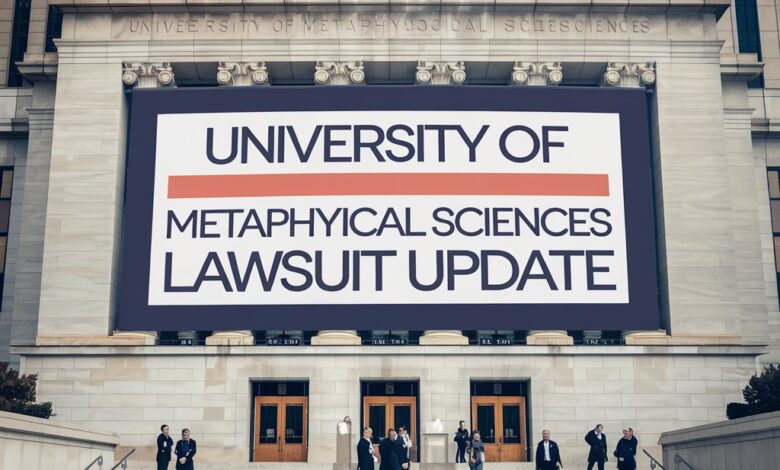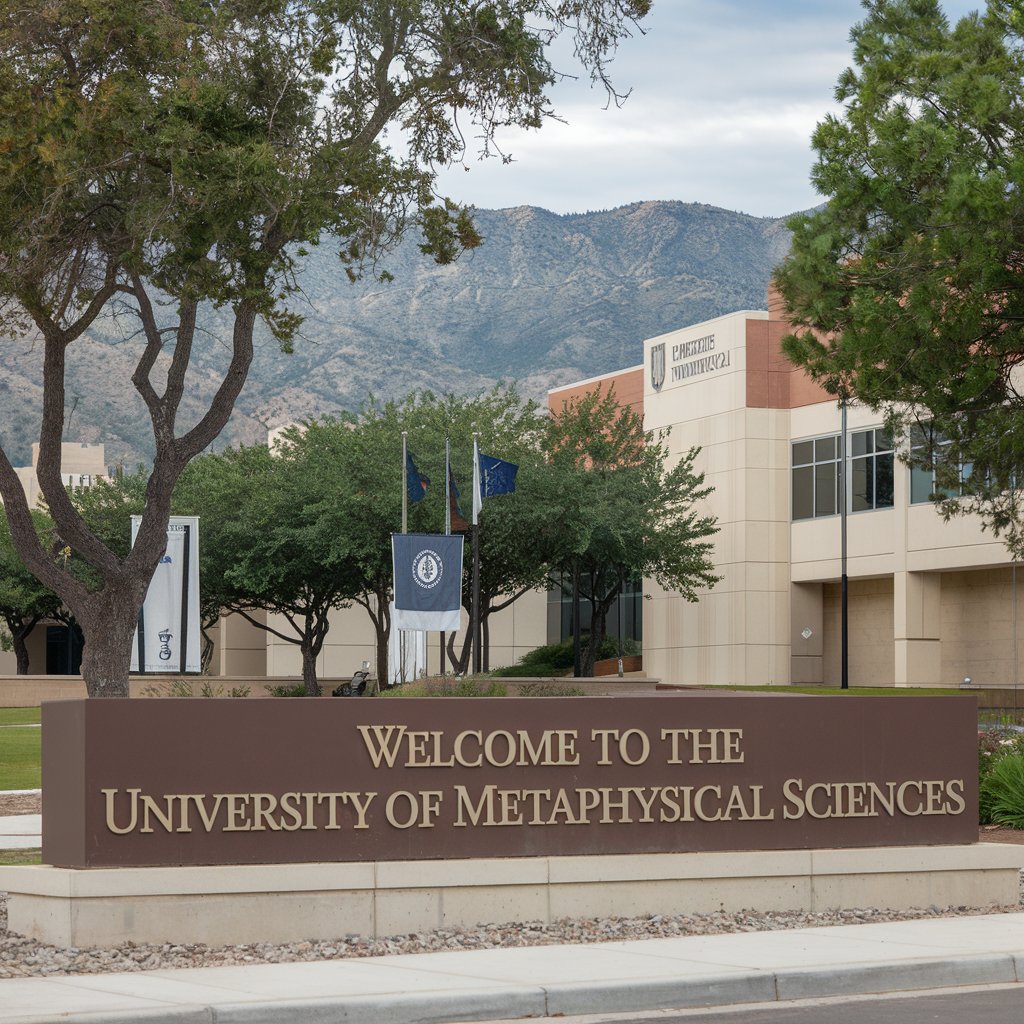University of Metaphysical Sciences Lawsuit Update: What You Need to Know About the Ongoing Legal Battle

The University of Metaphysical Sciences lawsuit update has been a major topic of discussion in the spiritual education world. The university has been fighting legal battles for nearly a decade, with the latest case set to go to trial in June 2025. These lawsuits have raised questions about the future of metaphysical education and the challenges smaller schools face when up against larger, more powerful institutions.
In this University of Metaphysical Sciences lawsuit update, we dive into the heart of the dispute, exploring the key allegations, the university’s defense, and how it has managed to keep moving forward despite the challenges. With claims of false advertising and trademark infringement, UMS has been working hard to protect its reputation and educational integrity, all while facing aggressive legal tactics that have already cost millions.
What’s at Stake in the University of Metaphysical Sciences Lawsuit Update?
The University of Metaphysical Sciences lawsuit update has a lot of people in the metaphysical education world talking. For nearly a decade, UMS has been defending itself against accusations that could impact its reputation and operations. The university faces legal battles that could shape its future in the coming years.
One of the biggest concerns for UMS is the long-term effects of these lawsuits. If the university loses the cases, it could have trouble continuing its educational programs. With each lawsuit costing millions, this legal fight could drain UMS financially. This makes it a high-stakes battle, not just for the university, but for its students and staff too.
Another key issue is the impact these lawsuits have on the credibility of metaphysical education. Smaller schools like UMS face the threat of being silenced or forced to shut down by legal tactics. If these tactics are allowed to continue, they could harm the entire community of spiritual learning institutions.
Breaking Down the Key Claims in the University of Metaphysical Sciences Lawsuit

The main allegations in the university of metaphysical sciences lawsuit update include false advertising and trademark infringement. UMS is accused of misleading marketing practices and using a competitor’s name in its online ads. These claims have led to multiple lawsuits, with the most recent one set to go to trial in 2025.
One of the biggest claims is that UMS used search engine ads to mislead potential students by including competitors’ names. However, UMS denies this. The university has shown evidence to support its innocence, including proof that they avoided using negative keywords or misleading ads. This is a crucial point in the case as it directly challenges the core accusations.
In addition to the advertising accusations, UMS is also facing issues with its trademark. A competitor has tried to cancel UMS’s trademark for the name “University of Metaphysics.” UMS is fighting to keep this trademark, which has been a significant part of its identity for years.
Key Claims:
- False Advertising: Accusations that UMS misled potential students in its ads.
- Trademark Dispute: A competitor seeks to cancel UMS’s trademark.
- Search Engine Manipulation: Claims that UMS used unethical SEO tactics.
How the University of Metaphysical Sciences is Defending Against False Advertising Accusations
The university of metaphysical sciences lawsuit update has shown that UMS is fully committed to defending itself against the false advertising claims. One of the major defenses they are using is that they have never misled anyone about their programs or degrees. They have collected proof from their Google AdWords account that shows they followed all advertising guidelines.
UMS also argues that they took extra steps to avoid using negative keywords. They even provided a list of terms that blocked competitors’ names from appearing in their ads. This is an important piece of evidence, as it shows that UMS made efforts to ensure their ads were not misleading.
Finally, UMS is also using expert opinions and records of their marketing practices to prove that they were clear and honest in their advertising. They believe that these efforts will help clear their name in the courtroom and show that the accusations are baseless.
Why the University of Metaphysical Sciences Refuses to Settle in the Lawsuit
UMS has been very clear that it will not settle any of the lawsuits it is facing, and the latest university of metaphysical sciences lawsuit update is no exception. The reason behind this decision is that UMS believes settling would imply guilt for something they did not do. They want to clear their name in court, not give in to tactics that could force them to pay for something they did not do.
One of the key factors that has led UMS to refuse to settle is their commitment to transparency and truth. They have a reputation to uphold, and paying settlements could damage that. UMS wants to make sure that they stand up for their integrity, both for their students and the metaphysical community.
Additionally, UMS has been able to defend itself in the past, even with the financial strain these lawsuits have caused. They have shown that they are strong enough to face these challenges without compromising their values or educational standards.
Reasons for Refusing to Settle:
- Protecting Reputation: UMS wants to clear its name and avoid paying for something it didn’t do.
- Commitment to Transparency: They are focused on maintaining honest business practices.
- Financial Resilience: Despite the costs, UMS remains financially strong and committed to defending itself.
Impact of the University of Metaphysical Sciences Lawsuit on Its Educational Programs

The ongoing legal challenges haven’t stopped the University of Metaphysical Sciences lawsuit update from continuing its educational programs. Despite the lawsuits, UMS remains focused on delivering high-quality degrees in metaphysical studies. They are determined to stay true to their mission of providing transformative education for spiritual seekers.
One key area UMS is focusing on is maintaining its registration with the Department of Education. The university assures students that their degree programs are not under threat and will continue to be accredited. UMS has worked hard to keep its educational standards high, even in the face of adversity.
The lawsuit also emphasizes the importance of protecting smaller educational institutions. Many students and supporters in the metaphysical community are watching closely to see how UMS handles the pressure. This case could set an example for how smaller schools can defend themselves against larger, more financially powerful institutions.
How the University of Metaphysical Sciences is Managing Its Reputation During the Lawsuit
The university of metaphysical sciences lawsuit update has also shown how UMS is working hard to manage its reputation during these tough times. They are aware that public perception is important, especially when dealing with false accusations. UMS has taken steps to communicate openly with its students and supporters about the lawsuit.
They have made sure to address the rumors and misinformation online. UMS works with its community to ensure that their side of the story is heard. Through regular updates and transparency, the university is building trust with its students and alumni.
Additionally, UMS is using its non-profit status to encourage donations to help with the legal costs. These donations are tax-deductible, which has helped increase support from their community. This strategy not only helps with funding but also strengthens the bond between UMS and its supporters.
Reputation Management Strategies:
- Open Communication: UMS keeps its students informed with regular updates.
- Addressing Misinformation: Actively combats false rumors online.
- Community Support: Encourages donations to help fund legal defense.
Conclusion:
The University of Metaphysical Sciences lawsuit update shows how tough the legal challenges are for smaller educational institutions. Even though UMS is facing multiple lawsuits, they are determined to defend their reputation and continue offering quality education. Their commitment to transparency and honesty is clear as they fight these legal battles in court.
Despite the challenges, UMS remains focused on its mission of providing transformative education in metaphysical studies. They are not letting these legal issues stop them from offering students a meaningful learning experience. The outcome of this lawsuit will likely affect the future of metaphysical education and how smaller schools defend themselves in similar situations.
FAQs
Q: What is the University of Metaphysical Sciences lawsuit about?
A: The lawsuit involves accusations of false advertising and trademark infringement. UMS denies these claims and is defending itself in court.
Q: Why is UMS refusing to settle the lawsuit?
A: UMS believes settling would imply they are guilty, and they want to clear their name in court while protecting their reputation.
Q: When is the trial for the University of Metaphysical Sciences lawsuit?
A: The trial is scheduled for June 16-20, 2025, in the United States District Court, Northern District of California.
Q: How is UMS managing its reputation during the lawsuit?
A: UMS is staying transparent with its students and supporters, addressing misinformation, and encouraging community donations to help with legal costs.
Q: Will the lawsuit affect UMS’s educational programs?
A: No, UMS assures that its educational programs will continue without interruption, and its Department of Education registration is secure.
